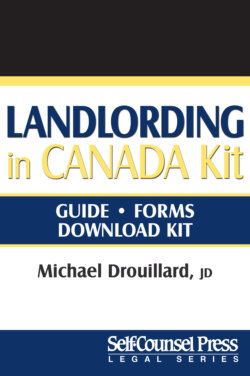Читать книгу Landlording in Canada - Michael Drouillard - Страница 34
На сайте Литреса книга снята с продажи.
Human Rights Legislation
ОглавлениеEvery province has some sort of legislation that prohibits landlords from discriminating against tenants. Generally speaking, landlords are prohibited from directly discriminating against tenants on the basis of race, ancestry, place of origin, marital status, family status, lawful source of income, physical or mental disability, and so on. This means, for example, that declining a tenancy on the basis that the applicant has a child is going to land you in a lot of trouble. This should be obvious to any twenty-first century landlord. Discrimination of this kind is never acceptable. It is amateur and it leads to bad business decisions.
However, what is less obvious to many landlords is a legal concept known as “constructive discrimination.” This refers to a situation where the landlord engages in a practice that does not openly discriminate against anyone, but which leads to the practical result of discrimination.
One example of constructive discrimination is the use of an income ratio as the sole basis to decline or accept a tenancy. If a landlord requires all of his or her tenants to have an income that is equivalent to, for example, three times the rent and if a landlord declines a tenancy application solely because the tenant does not have such an income, this could be considered discrimination because it guarantees that tenants who receive income from other sources, such as government subsidies, will never be able to rent your property. Landlords cannot decline a tenancy based on a tenant’s lawful income and so this practice of relying exclusively on an income ratio is discrimination.
The reach of constructive discrimination is somewhat controversial. On one hand, landlords should not be allowed to discriminate, but on the other, landlords have legitimate business interests that they have to protect. In any event, constructive discrimination is the law and it affects you. The best advice I can give you to avoid getting into trouble is to read the website for the human rights authority in your province to see what advice they have for landlords, and also to join a landlord association so that you have access to experienced help in your province.
Be aware that you can do everything you can to avoid discrimination and still become subject to a complaint from a tenant who is trying to pressure you with a frivolous claim. The chances of this happening are quite low, but the best thing you can do is to be aware of good practices for landlords to avoid discrimination, to keep good records, and to always act in a courteous and respectful manner to all of your existing and prospective tenants.
